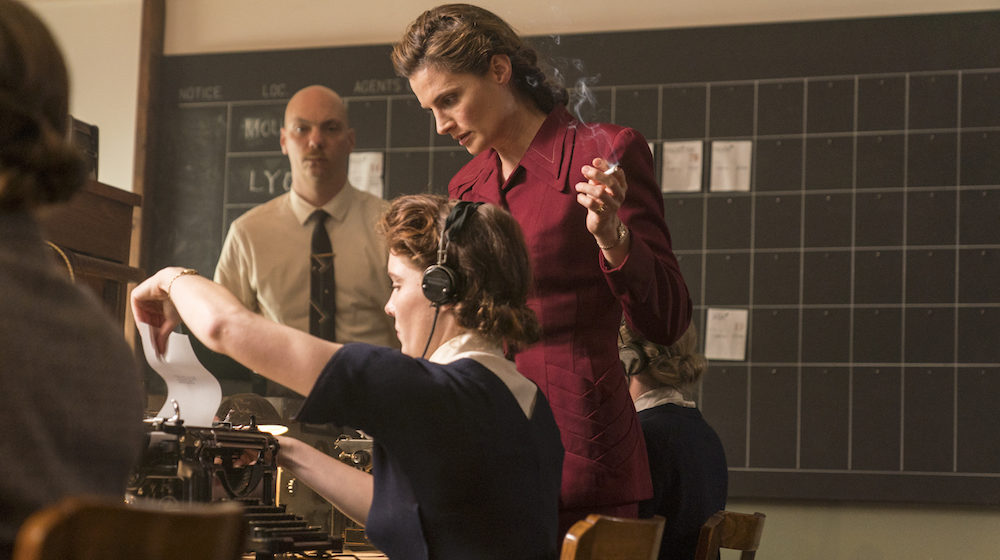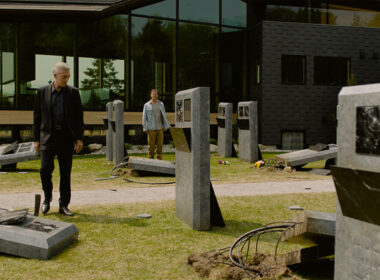Rating: ***
If there is an almost mythological allure to the stories of lady spies why is Hollywood not capitalising on it? From Mata Hari in World War I to the Resistance ladies from World War II, it is such a prolific setting that can lead to either an edge-of-the-seat titillating thriller or a hard-knock historical drama. Why has it been reduced to just action flicks about women in action? While the men, with all their seriousness and burliness, get the cool prestigious espionage missions.
There was that great sequence of Diane Kruger in Inglorious Bastards where she plays charades with German officers and Michael Fassbender, and there was Black Book directed by Paul Verhoeven and with a pre-Game of Thrones Carice van Houten as a Jewish Dutch spy who infiltrates a local Gestapo headquarters. Yet despite these there is a whole category of men-based spy dramas from Spielberg’s Bridge of Spies to Billy Wilder’s Stalag 17. It is a missed opportunity: for while the men fought at the front, the women were working to sabotage the enemy and rescue soldiers left behind.
Enter A Call to Spy, a new spy drama about the real story of three women recruited as part of a new program commissioned by Winston Churchill. The set-up, as the text at the start reveals, is that the lack of prepared professionals meant a lot of missions were failing and jeopardising the lives of the soldiers behind enemy lines.
So, the task falls on Vera Atkins (Stana Katic) to build a network of French-speaking female spies. Her first two undercover operatives set the tone for her unique approach – there’s Virginia Hall (Sarah Megan Thomas, who also wrote the script), an American with a wooden-leg and an uncommon drive to do the right thing, and Noor Khan (Radhika Apte), a wireless operator whose war effort comes from a commitment to pacifism.
Filmmaker Lydia Dean Pilcher knows what she wants to take from the story and caringly focuses on a couple of elements that, while sometimes not the most interesting ones, provide for a tight and well-rounded film that never feels exhausting even with its runtime of just a little bit over two hours. It’s obvious she cares most about the mission and less about the build-up. She shows her chops when Virginia sets foot in France. Finally, she can give us real dramatic problems instead of boring set ups. Everything that comes before is a series of frankly underwhelming sequences of exposition that she rushes as fast as she can to get to the real juice.
Unfortunately, it’s Thomas’ script that fails to accompany the weight of the film; mainly because of some clunky details that could’ve been finessed with a little more time. The first action moves too quickly and doesn’t let the true dramatic problem of its protagonists grow. Right at the start a voice on the radio says “In other news, Nazi forces now occupy Poland, Australia, Northern France…” like it’s rushing through a useless setup. It’s a recurring MO that leaves the audience hoping there was a couple more drafts on the script to help refine it.
Because both writer and director aren’t British, they don’t fall on the trap of jingoism of many WWII films (looking at you Imitation Game). There is a terrific moment in a party where Atkins overhears comments about not wanting to bring more Jews over, or the crass “make sure they’re pretty” after she’s assigned to recruit the women. It’s the kind of moment so often missed in historic dramas. That level of detail, and the frankly exquisite level of production for a period film, are where A Call to Spy shines brightly. Without them, this would’ve been too middle of the road to appreciate. Instead it holds the same level of any good BBC historical drama. If that’s your cup of tea, then this one is an assured choice.
A Call to Spy will be in cinemas on Boxing Day.




